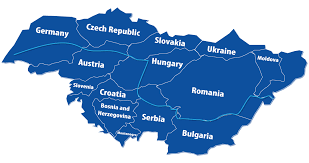89 projects have been competing for nearly EUR 92 million under the Interreg Danube Region Programme 2021-2027
89 projects have been submitted under the first call for proposals under the Interreg Danube Region Programme 2021-2027. They will compete for funding amounting to EUR 91,7 million. This became clear during the 3rd session of the Monitoring Committee of the European territorial cooperation programme, held at the Ministry of Regional Development and Public Works. Representatives of 14 states along the Danube river valley and European Commission’s experts participate in it.
The forum was opened by Deputy Minister of Regional Development and Public Works Angelina Boneva. Before the participants she noted the Danube Region has a vital role in the European Union’s economic and cultural heritage and it is home for million people. “The European Union’s Strategy for the Danube Region reports the potential of the countries along the Danube river valley and together with the Programme aim to encourage the sustainable development, economic growth and social convergence. This is a significant investment in the region’s future, the engagement and the cooperation between the countries,” emphasized Deputy Minister Boneva.
The results from the second step under the first call for project proposals under the Programme were presented during the session. The procedure under it was conducted last year. Representatives of local, regional or national authorities, academic organisations, non-government organizations, business associations, enterprises, etc. were able to submit applications under four priority axes: “A more competitive and innovative Danube region”, “Greener, low-carbon Danube region”, “A more social Danube region” and better governance through cooperation.
The members of the Commission also approved the procedure for the second call for project proposals. It is expected to be announced in the autumn.
The Interreg Danube Region Programme 2021-2027 covers 14 countries – Austria, Bulgaria, Croatia, the Czech Republic, Germany (Baden-Württemberg and Bavaria), Hungary, Romania, Slovakia, Slovenia, Bosnia and Herzegovina, Montenegro, Serbia, Moldova and Ukraine. Its main aim is to encourage the sharing and application of collaborative solutions for coping with the common challenges and problems, related to the innovations, better connectivity of the region, environmental protection, etc.
